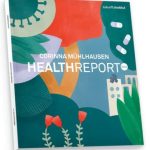Omega-3 Polyunsaturated Fatty Acids in Youths with Attention Deficit Hyperactivity Disorder: a Systematic Review and Meta-Analysis of Clinical Trials and Biological Studies
Jane Pei-Chen Chang*,1,2,3, Kuan-Pin Su1,2,3,4, Valeria Mondelli1 and Carmine M Pariante1
1 Department of Psychological Medicine, Institute of Psychiatry, Psychology and Neuroscience, King’s College London, London, UK; 2 Department of Psychiatry, China Medical University Hospital, Taichung, Taiwan; 3 Department of Psychiatry, College of Medicine, China Medical University, Taichung, Taiwan; 4 Brain Disease Research Center, China Medical University Hospital, Taichung, Taiwan
Abstract
The role of omega-3 polyunsaturated fatty acids (omega-3 or n-3 PUFAs) in the pathogenesis and treatment of children and adolescents with attention deficit hyperactivity disorder (ADHD) is unclear. A systematic review followed by meta-analysis was conducted on: (1) randomized controlled trials (RCTs) assessing the effects of n-3 PUFAs on clinical symptoms and cognition in children and adolescent with ADHD; and (2) case–control studies assessing the levels of n-3 PUFAs in blood and buccal tissues of children and adolescents with ADHD. In seven RCTs, totalling n=534 randomized youth with ADHD, n-3 PUFAs supplementation improves ADHD clinical symptom scores (g=0.38, po0.0001); and in three RCTs, totalling n=214 randomized youth with ADHD, n-3 PUFAs supplementation improves cognitive measures associated with attention (g= 1.09, p =0.001). Moreover, children and adolescents with ADHD have lower levels of DHA (seven studies, n =412, g =− 0.76, p= 0.0002), EPA (seven studies, n= 468, g=− 0.38, p =0.0008), and total n-3 PUFAs (six studies, n =396, g= − 0.58, p =0.0001). In summary, there is evidence that n-3 PUFAs supplementation monotherapy improves clinical symptoms and cognitive performances in children and adolescents with ADHD, and that these youth have a deficiency in n-3 PUFAs levels. Our findings provide further support to the rationale for using n-3 PUFAs as a treatment option for ADHD. Neuropsychopharmacology (2018) 43, 534–545; doi:10.1038/npp.2017.160; published online 23 August 2017
(…)






